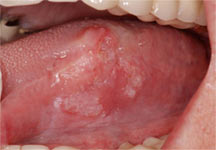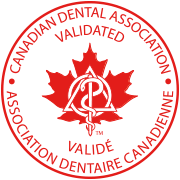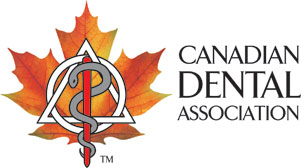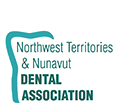Oral cancer is a disease resulting from abnormal cell growth in the mouth, lips, tongue or throat. In 2003, an estimated 3,100 new cases of oral cancers were identified in Canada, and about 1,090 deaths occurred as a result of the disease.
People over the age of 45 are most at risk. The good news is that oral cancer can be treated successfully if caught early enough.
Your dentist has the expert skill and training to detect early signs of the disease and can help you to understand your risks.

Oral cancer*
Signs and symptoms
- White or dark red patches in your mouth, or on your lips or tongue.
- Lumps or changes in the texture or colour of the mouth tissues.
- Bleeding or numbness in the mouth; sores or patches that do not heal.
- Difficulty swallowing; changes in taste or tongue sensation.
Risk factors
The actual cause of oral cancer is not known but risk factors include:
- Consumption of tobacco products (cigarettes, chewing tobacco, cigars, etc).
- Heavy alcohol consumption (It is especially dangerous to combine smoking and alcohol.)
- Oral sex.
- Prolonged, repeated exposure of the lips to the sun.
- Poor diet; genetics and gender (more men develop the disease than women.)
- A history of leukoplakia - a thick, whitish-colour patch inside the mouth.
Diagnosis and treatment
Treatment depends on the severity and location of the disease, as well as the age and health of the patient. If oral cancer is suspected:
- A biopsy (surgical removal and microscopic examination) of the suspicious area may be taken.
- Imaging tests such as X-rays, ultra sounds, CT scans or MRIs may be taken.
- Chemotherapy, radiation therapy or surgery may be necessary to remove tumor(s).
To help prevent oral cancer:
- See your dentist regularly for dental exams and ask about oral cancer screenings.
- Stop using tobacco products - ask your dentist about tools to help you quit.
- Limit alcohol consumption.
- Limit sun exposure and use U/V protective lip balms.
- Eat a healthy diet with lots of fruits and vegetables.
- Check your mouth regularly for signs or symptoms and report any changes in your mouth to your dentist right away.

Be in control of your oral health. Practice good oral hygiene, see your dentist regularly and look for the CDA Seal Program when purchasing oral health products.
*Photo courtesy of the British Columbia Oral Cancer Prevention Program.











